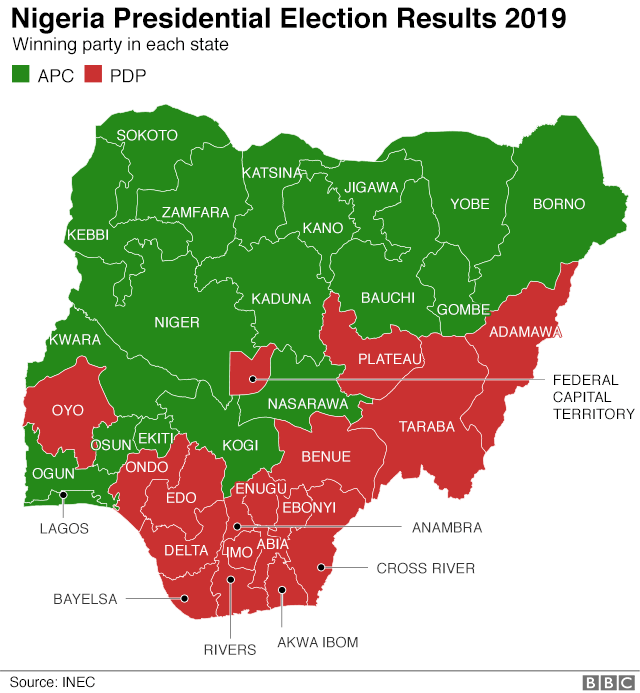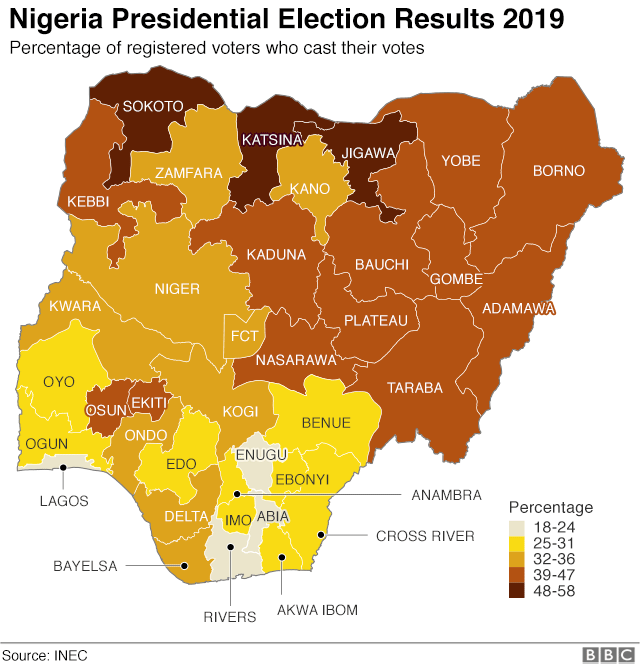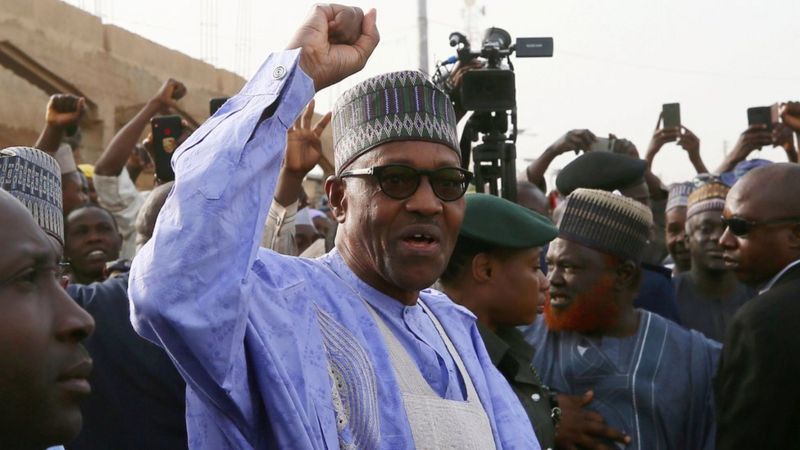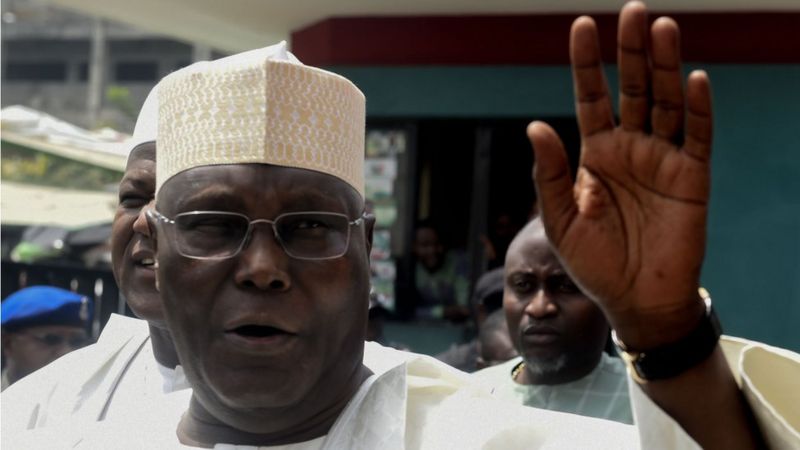Nigerian President Muhammadu Buhari has been re-elected for a second four-year term, the election commission says.
The 76-year-old defeated his main rival, former Vice-President Atiku Abubakar, with a margin of nearly four million votes.
Mr Abubakar’s People’s Democratic Party (PDP) has rejected the result. Turnout was a record low at just 35.6%.
Delays and violence marred the run-up to Saturday’s poll but no independent observer has cited electoral fraud.
“The new administration will intensify its efforts in security, restructuring the economy and fighting corruption,” Mr Buhari said after his victory was officially announced.
- Africa Live: Buhari tells supporters not to gloat
- Why Nigeria’s ‘generation democracy’ didn’t vote
- Nigeria in nine maps and charts
Overall, the APC got 15.2 million votes while the PDP received 11.3 million.
Mr Buhari swept the north, while Mr Abubakar did better in the south and east.

Although was low across the country, it was higher in the northern states – one factor behind Mr Buhari’s victory.

Who is Buhari?
A former soldier, Mr Buhari led a military regime for 20 months in the 1980s and was first elected president in 2015, becoming the first opposition candidate to defeat an incumbent and win the presidency.
 Image copyrightREUTERS
Image copyrightREUTERSHis record in office is mixed. Mr Buhari’s critics say that the very attributes that won over voters four years ago – his strictness and inflexibility – have emerged as liabilities. They accuse him of autocratic leanings as well as a disastrous tendency towards inaction.
Mr Buhari’s supporters can argue that he has largely delivered on campaign pledges such as tackling corruption and cracking down on Boko Haram. But they may struggle to point to concrete achievements in other fields, such as fixing the economy.

Tough challenges ahead
By Fergal Keane, BBC Africa editor
The breadth and depth of corruption is so great, it affects so many aspects of public life that making serious inroads into the problem would require a focus, energy and application that was lacking in President Buhari’s first term.
The second problem he faces in fighting corruption is having the necessary political support. There is undoubted public backing but Mr Buhari’s party is compromised by senior members suspected of enriching themselves through graft. The fear is that across the board the looters will carry on pretty much as normal.
Economically, ending the dependency on oil revenues needs to happen at a much faster pace. The World Bank has predicted sluggish economic growth: 2.2% for the coming year in a country with unemployment of more than 20% and nearly half the population living in extreme poverty
President Buhari also faces an array of security threats from clashes between farmers and herdsmen in the Middle Belt, continuing instability in the Niger Delta and – most worrying of all – a revived threat from Islamic extremists in the north of the country.

What are the main issues?
Africa’s most populous nation and largest economy faces a range of problems including power shortages, corruption, security threats, and an economic slowdown.
Nigeria is Africa’s leading oil producer but corruption and a failure to invest the proceeds from the industry have hampered development.
A slow recovery from a recession in 2016 means there are not enough jobs for the large number of young people joining the employment market. About a quarter of the working age population is unemployed.

Election in numbers
- 15 million votes for Mr Buhari
- 11 million voted for Mr Abubakar
- 73 million have voters’ cards
- Turnout was 35.6%
What is the opposition saying?
Earlier on Tuesday, PDP chair Uche Secondus called the count “incorrect and unacceptable”. The party said counting should be stopped, alleging data from voter card readers had been manipulated.
The federal government accused the PDP of trying to “scuttle the polls” and prompt a constitutional crisis.
 Image copyrightAFP
Image copyrightAFPSome 130 people have been taken into custody suspected of electoral offences, reports say.
The initial vote was postponed early on 16 February, five hours before polls were due to open. Voters were also choosing members of the House of Representatives and Senate.